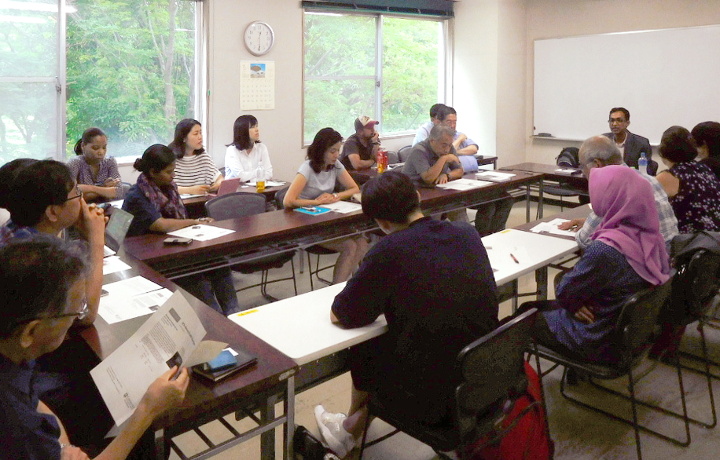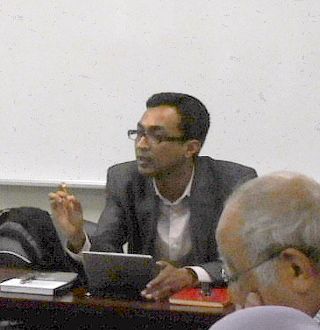横浜法学会 研究会成果報告
横浜法学会 平成28年度第1回研究会成果報告
下記の通り研究会を開催いたしました。
日時 |
2016年7月27日(水)12:10~12:50 |
|---|---|
場所 |
法学研究棟2階201号教室 (横国大HPアクセスガイドよりキャンパスマップN4-5参照) |
講師 |
Dr. Mohammad Shahabuddin |
題目 |
Ethnicity and International Law: Histories, Politics, and Practices |


One of the peculiarities of the post-Cold War moment of international law in relation to ethnicity remains in the fact that the collapse of the Soviet Empire is on the one hand celebrated as the triumph of liberalism, the End of History and the harbinger of liberal-democratic progress and peace, and on the other hand identified as the trigger for the eruption of violent ‘ethnic’ conflicts even in Europe. These developments brought the issue of ethnicity – a primitive notion in liberal understanding – to the forefront.
Despite this, liberal international lawyers failed to properly consider the normative significance of ethnicity and instead pursued the moral end of a post-ethnic world order that complied with the liberal individualist premise of international law. The liberal understanding of ethnicity is as something primitive and backward. At the same time, the relevance of ethnicity remained alive in the conservative tradition (within political philosophy that was translated into international law); indeed ethnicity is perceived as the central element of political organisation of nation-States. Liberal international lawyers, driven by pragmatic needs, often seek to reconcile these conflicting traditions of understanding ethnicity. As a result, at the normative level, ethnicity remains a peripheral issue in international legal discourse, and appears relevant only as a pejorative descriptive criterion as in ‘ethnic conflicts’ and ‘ethnic minorities’.
Ethnicity and International Law is an effort to reverse this understanding of the relationship between ethnicity and international law by tracing the central role that ethnicity plays in the historical development of international law. The central argument of the book is that the present-day hesitancy of liberal international law to engage with ethnicity in ethnic conflicts and ethnic minorities has its root in the way international law developed along the lines of the nineteenth century’s liberal and conservative traditions of understanding the salience of ethnicity in political identity formation. The development of international law since the nineteenth century is characterised by the inherent tension of the juxtaposition of these philosophical traditions of dealing with what might be termed the ‘problem of ethnicity’. And the liberal ambivalence towards ethnic conflicts and ethnic minorities will continue, given that the hegemonic cultural connotation of liberalism leaves international law with rather few means to meaningfully engage with ethnicity within a normative framework, as opposed to the make-shift pragmatic arrangements which are currently in place. In international legal studies, the relevance of ethnicity as well as the traditions of understanding it – the subject of my scrutiny in this book – lies in this fact.
M. Shahabuddin, Ethnicity and International Law: Histories, Politics, and Practices
(Cambridge: Cambridge University Press, 2016)
www.cambridge.org/9781107096790
お問い合わせ先
横浜法学会
〒240-8501 横浜市保土ヶ谷区常盤台79-4 横浜国立大学大学院
国際社会科学研究院法学会事務局(法学研究棟3階 N4-5参照)
開室時間 月・木・金10:00~17:00 昼休み12:45~13:45
担当:中川 Tel/Fax 045(339)3632 E-mail: aiblaw ynu.ac.jp
ynu.ac.jp
